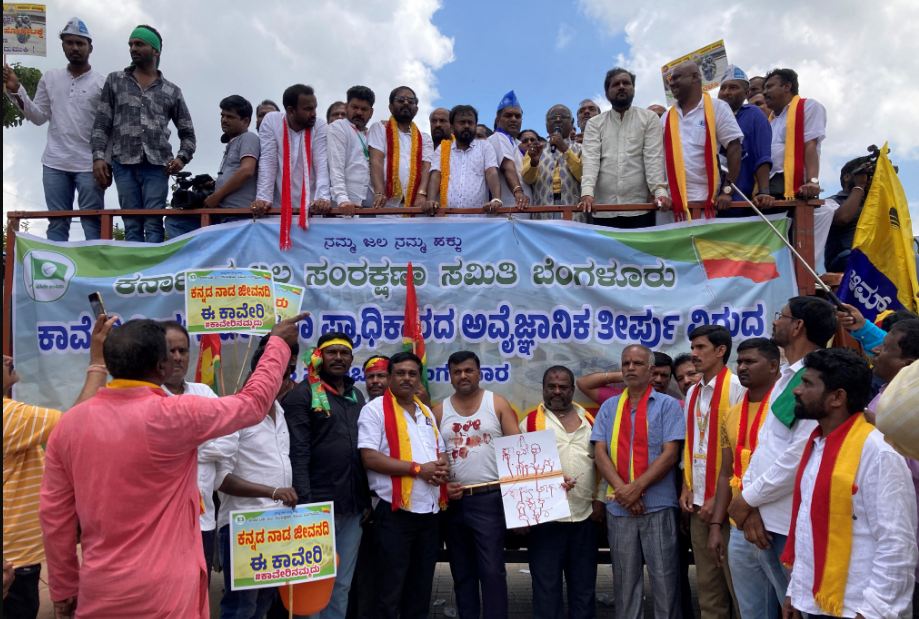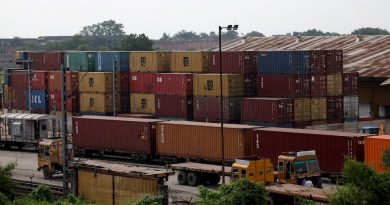Why are Indian states fighting over the Cauvery river?
New Delhi (Reuters) – India’s severely stressed water resources have come under the spotlight this week as farmers and trade unions in Karnataka state reignited protests over the sharing of the Cauvery river waters with neighbouring Tamil Nadu.
Here is a quick look at the dispute that has long reared its head in rainfall deficit years, straining ties between the southern states for 150 years:
The Row
The Cauvery river originates in Talakaveri in Karnataka’s Coorg district and runs for nearly 800 kilometres, flowing through Tamil Nadu into the Bay of Bengal.
A number of dams in Karnataka – including the Krishna Raja Sagara (KRS) dam constructed during the British colonial rule of India – restrict the flow of water towards Tamil Nadu.
The legal battle on allocation of water and the establishment of reservoirs along the river has raged for years, with the Karnataka government saying it has paid over 1.2 billion Indian rupees ($14.45 million) in litigation fees over the dispute since 1990.
Tributaries of the river flow through Kerala state and the federally governed region of Puducherry, both of which have previously been party to the dispute.
The Cauvery Water Disputes Tribunal was established in 1990 to address the conflict.
Dry Spell
Karnataka has rejected the court order to release 5,000 cusecs (142,000 litres) of river water to Tamil Nadu for 15 days this month, stating that the state cannot afford to do so as it battles drought conditions.
Tamil Nadu meanwhile says the river is a shared resource. Farmers on both sides say inadequate water supply will affect harvests.
Changing weather patterns, combined with rapid urbanisation and rising consumption have exacerbated the dispute in recent years.
Violent Protests
In 1991, at least 18 people were killed in Bengaluru after riots broke out over a court order telling Karnataka to release water to Tamil Nadu sparked riots.
At least two people were killed after protests in Bengaluru turned violent in September 2016 after India’s Supreme Court ordered Karnataka to divert water to Tamil Nadu.
(Sources: Department of Water Resources, River Development and Ganga Rejuvenation, Press Information Bureau, World Bank)



